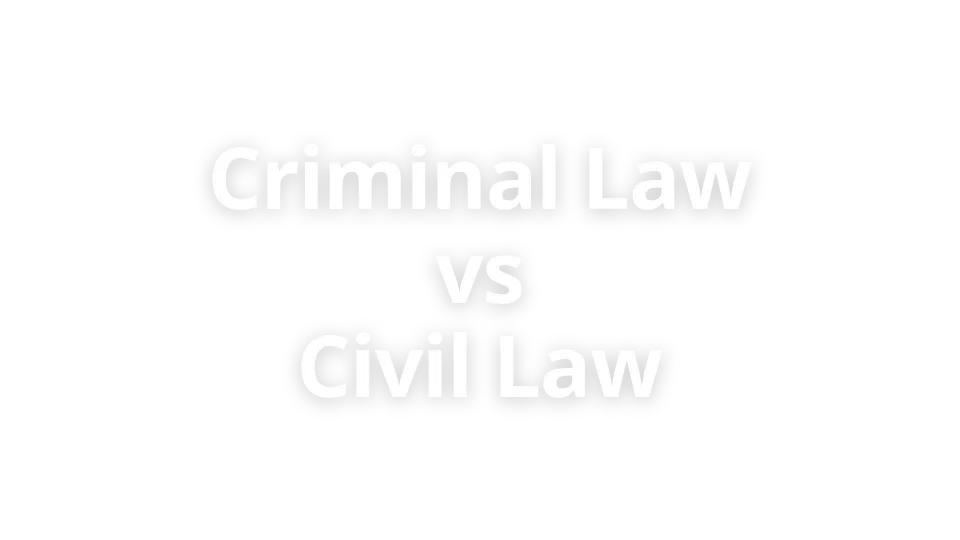Police Investigations
California Criminal Defense Attorneys
If you suspect that the police are investigating you, then it is best for you to reach out to a criminal defense lawyer at My Rights Law. When you hire My Rights Law, you get a firm with a track record of success in handling cases like yours. We will carefully review the accusations against you and work hard to defend you. Put your case in the right hands by calling My Rights Law at (888) 702-8845 or by filling out our secure web form to set up a free consultation.
- 1. Introduction To Police Investigations
- 2. Police Must Have A Reason To Conduct A Search
- 3. Police Must Have A Reason To Arrest A Suspect
- 4. Police Must Document Evidence
- 5. Police Must Tell Suspects Their Rights
- 6. Police Must Be Thorough In Their Investigation
- 7. Consulting With A Criminal Defense Lawyer To Police Investigations
Introduction To Police Investigations
In the United States, the Constitution, Bill of Rights, and other Amendments give us legal protection. Over time, the U.S. Supreme Court, Federal Courts, and California State Courts and legislature have made decisions and written laws about what rules and procedures the government can, can’t, and must follow in criminal investigations.
These rules and procedures ensure we don’t lose our life or liberty without due process of law. In other words, the government has to follow certain rules to convict someone of a crime and put them in jail. If the police don’t follow these rules in a criminal investigation, the whole case can be thrown out.
Here are some of the important rules police must follow in criminal investigations.
Police Must Have A Reason To Conduct A Search
The police have to have a reason to conduct a search of property or a person.
Police are allowed to search someone’s home or car when they have consent from the owner[1] or a search warrant signed by a judge. A search warrant needs to be specific about what police are looking for and where they think it will be.
Similarly, if the police want to briefly stop and frisk someone, they need to have at least a reasonable suspicion that the individual was engaged in criminal activity.[2] Police can’t stop someone just because they don’t like the way they look, and they definitely can’t stop someone just based on their race or ethnicity.
Police are allowed to conduct more thorough searches and enter private property without warrants or permission in some situations.[3] These circumstances are called exigent circumstances. Generally, police can conduct this type of search if there is an emergency situation that requires quick action, and if the police don’t act, then someone could be seriously hurt, a suspect could escape, or evidence could be destroyed.
These situations include:
- When the police are in “hot pursuit” of a subject who is running away, they can follow the suspect into a private home,
- When the police believe an office or individual person is about to be hurt by the suspect, they can enter a private home, or
- When the police believe the suspect is about to destroy evidence, for example, by flushing it down the toilet, they can enter a private residence.
There’s no hard and fast rule about what’s considered an exigent circumstance. After the emergency is over, police may need to explain their actions to a judge and receive a warrant supporting their actions.
Police Must Have A Reason To Arrest A Suspect
Police must also have a reason, or probable cause, to arrest someone they think committed a crime.[4] There are a few ways police can legally arrest a suspect.
Police can gather evidence their suspect committed a crime, present the evidence to a judge, and ask the judge to grant an arrest warrant. Police must show they judge they have probable cause their suspect committed a crime. If the judge agrees, they will give the police an arrest warrant, which gives permission to arrest the suspect. If the judge disagrees, the police need to gather additional evidence and try again.
Police are also allowed to arrest someone without a warrant if they believe they have probable cause. For police to make this kind of arrest, they’ll still need a judge to sign off on their evidence once the arrest takes place. This can be a risky move for police – if the judge doesn’t find probable cause, the police have to let the suspect go. If police witness someone committing a crime, this can be sufficient probable cause for the arrest.
Police Must Document Evidence
When police collect evidence in a criminal investigation, they need to document it carefully. They must say where and when it was collected. Evidence must always be in police custody, and police must keep records of who is in control of the evidence. This is called the chain of custody.
If the evidence is analyzed by a lab, the police must record who transported the evidence and on what date. They must say where and when it was analyzed and who did the lab work.
If the records are incomplete or show that the evidence was out of police custody, the chain of custody is broken. This means the evidence might be changed after it was discovered, and it can be excluded from a trial.[5]
Police Must Tell Suspects Their Rights
Police also have rules about interviewing or interrogating someone who is in custody.
In America, we have the right to counsel and the right against self-incrimination. Police must inform people in custody of these rights by giving them a Miranda warning.[6] This warning tells the defendant:
- They have the right to remain silent
- If they say anything, it can be used against them in a court of law
- They have the right to an attorney present during police interviews, and
- If they can’t afford an attorney, the state will provide one to them if they want representation.
If someone in police custody hasn’t been warned of their rights, anything they say is inadmissible in court. This means the police can’t use this information, including confessions, to prove that a defendant is guilty of a crime.
Once someone asks for an attorney, police cannot continue an interrogation without an attorney present.[7]
Police Must Be Thorough In Their Investigation
Finally, police must be thorough. Police need to document each step of their process in detail. Cases can take weeks to investigate, and a trial may not happen for months. These records show what police did and didn’t do when investigating a crime.
It’s important that police interview all witnesses and potential witnesses in order to obtain a full picture of what happened. If people don’t do this, they may miss crucial information that can change the course of an investigation.
Additionally, police have to be thorough when they hone in on a suspect. They need to review the suspect’s full alibi and investigate other potential suspects to exclude them.
Consulting With A Criminal Defense Lawyer To Police Investigations
The police and state prosecutors have specific rules they need to follow in criminal investigations and trials. Police need reasons to search someone and arrest them. They must be careful in investigating cases and documenting evidence along the way, and they have to advise suspects in custody of their rights to remain silent and to an attorney.
Even if police conducting an investigation do everything right, it’s still possible to break one of these rules. Defendants in criminal investigations should have protection if the police make a mistake in their investigation and violate the defendant’s rights.
An experienced criminal defense attorney knows how to review police criminal investigations. If they find that police made mistakes, they might have improper evidence, or even the whole case, thrown out.
If you believe the police handled the investigation into your criminal case improperly, contact the experienced criminal defense attorneys at My Rights Law at (888) 702-8845 or through our secure web form for a free case evaluation.
FOOTNOTES
[1] Schneckloth v. Bustamonte, 412 U.S. 218 (1973)
[2] Terry v. Ohio, 392 US 1 (1968)
[3] People v. Ramey, 16 Cal.3d 263
[4] California Penal Code 836
[5] People v. Lucas 12 CAL.4TH 415
[6] Miranda v. Arizona, 384 U.S. 436 (1966)
[7] Davis v. U.S. (512 U.S. 453 (1994)








